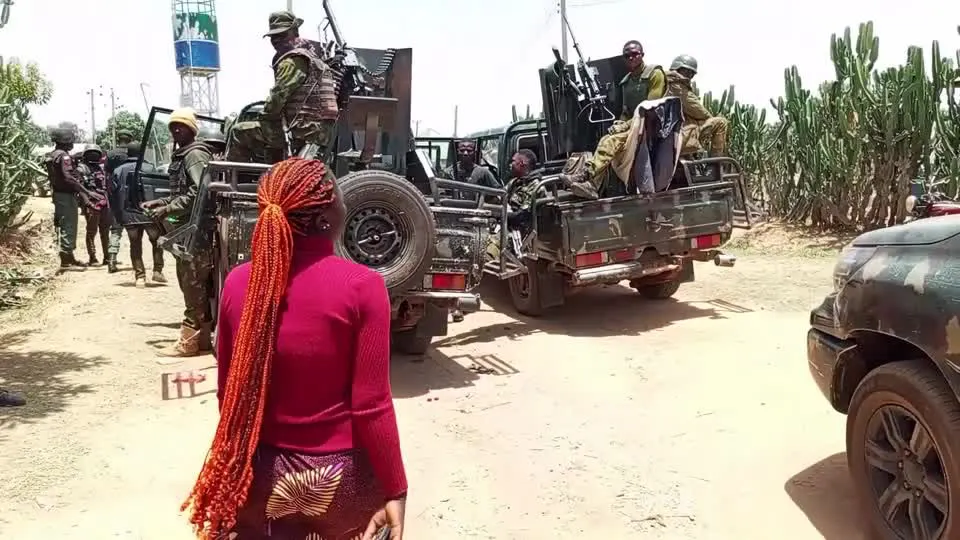The Unfolding Crisis: Christian Persecution in Nigeria
In a sobering congressional hearing before the U.S. House Subcommittee on Africa, lawmakers and witnesses painted a grim picture of the escalating violence against Christians in Nigeria. Representative Chris Smith, who has long advocated for religious freedom in the region, described Nigeria as “ground zero, the focal point of the most brutal and murderous anti-Christian persecution in the world today.” The New Jersey Republican, who has conducted three human rights trips to Nigeria and chaired twelve previous hearings on the subject, recounted horrifying incidents including a June attack in Yola where 278 people were reportedly killed by assailants shouting “Allahu Akbar.” His blunt assessment—”This is not random violence. It is deliberate persecution”—set the tone for a bipartisan examination of what some participants called the “deadliest place on Earth to be a Christian.”
The hearing revealed the staggering human cost of Nigeria’s security collapse, with Bishop Wilfred Anagbe of the Makurdi Diocese testifying via video from Benue state about church burnings, targeted abductions of priests, and mass displacement of Christian communities. “Nigeria remains the deadliest place on earth to be a Christian,” the Bishop stated, adding that “more believers are killed there annually than in the rest of the world combined.” He expressed gratitude for the Biden administration’s designation of Nigeria as a Country of Particular Concern (CPC) for religious freedom violations but urged that this designation be backed by concrete actions including sanctions and increased humanitarian support for displaced civilians. Representative John James (R-Michigan) cited estimates that nearly 17,000 Christians have been killed since 2019 alone, describing the violence as “a sustained pattern of religiously motivated violence, often ignored or even enabled by the Nigerian government.”
While there was bipartisan concern about the persecution, perspectives differed on its causes and potential solutions. Ranking member Sara Jacobs (D-California) cautioned against “oversimplistic narratives,” pointing to multiple factors driving Nigeria’s violence, including extremist insurgencies, farmer-herder conflicts, and organized banditry. She noted that 25 girls recently kidnapped in Kebbi state were all Muslim, emphasizing that “violence affects everyone” in Nigeria. Jacobs also criticized former President Trump’s suggestion of military intervention in Nigeria, calling such rhetoric “reckless and illegal” and arguing that unilateral U.S. military action would be “counterproductive.” She further claimed that the Trump administration had cut peace-building and conflict-prevention programs that once helped reduce violence in the region.
State Department officials Jonathan Pratt and Jacob McGee acknowledged the severity of the crisis while defending the administration’s approach. McGee stated plainly that “the levels of violence and atrocities committed against Christians are appalling… Nigerians are being attacked and killed because of their faith.” He highlighted blasphemy laws in 12 northern Nigerian states that can carry the death penalty, calling them “unacceptable in a free and democratic society.” Both officials testified that the U.S. is developing a comprehensive plan to “incentivize and compel” the Nigerian government to protect religious communities. The officials walked a diplomatic tightrope, expressing grave concern while maintaining that the U.S.-Nigeria relationship remains fundamentally sound.
The complex nature of U.S.-Nigeria relations was further explored when Representative Marlin Stutzman (R-Indiana) bluntly asked Oge Onubogu, director of the Africa Program at the Center for Strategic and International Studies, “Ma’am, are we frenemies? What are we?” Onubogu responded that the countries are indeed “friends” but stressed that U.S.–Nigeria engagement must come “from a place of honesty.” She acknowledged that Nigerians themselves “recognize something must be done quickly about the levels of insecurity” but cautioned against a “narrow narrative that reduces Nigeria’s security situation to a single story,” suggesting such simplifications might deepen existing divisions. Stutzman countered by arguing that if “Nigeria’s government cannot stop the violence, they should be willing to ask the international community for help.”
As the hearing concluded, Chairman Smith delivered a powerful closing statement that encapsulated the urgency of the situation: “The Nigerian government has a constitutional obligation to protect its citizens. If it cannot stop the slaughter, then America—and the world—must not look away.” This declaration reflected the subcommittee’s bipartisan concern, even as members disagreed on specific policy approaches. The hearing underscored the human tragedy unfolding in Africa’s most populous nation, where religious identity has become a death sentence for thousands. While diplomatic niceties and political considerations will continue to shape America’s response, the testimony made clear that Nigeria’s Christians face an existential threat that demands immediate action from both the Nigerian government and the international community. The question remains whether awareness will translate into effective protection for vulnerable religious communities caught in what one witness described as a “culture of denial” surrounding targeted religious violence.


